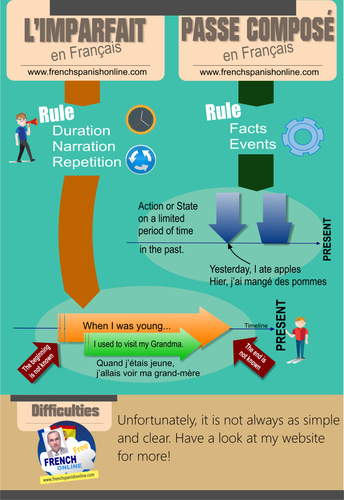
Not that simple! Following the rule is easy, unfortunately we have in French, many other cases coming with subtleties.
That the reason why most of the exercises you can find online are wrong. In many cases you can use both imparfait or passé composé, depending on the context and what you want to say!
An example I saw online:
Tous les jours, je les ... (aider) à se préparer.
And they ask for just one answer. But here both tense are correct!
Tous les jours, je les ai aidés à se préparer
Tous les jours, je les aidais à se préparer
The difference is that the imparfait put the action in a more distant past:
La semaine dernière, tous les jours, je les ai aidés...
Quand j'était petit, tous les jours je les aidais à...
And that a difficulty!
On my website you will find more examples for a better understanding: http://www.frenchspanishonline.com/magazine/passe-compose-vs-imparfait/
That the reason why most of the exercises you can find online are wrong. In many cases you can use both imparfait or passé composé, depending on the context and what you want to say!
An example I saw online:
Tous les jours, je les ... (aider) à se préparer.
And they ask for just one answer. But here both tense are correct!
Tous les jours, je les ai aidés à se préparer
Tous les jours, je les aidais à se préparer
The difference is that the imparfait put the action in a more distant past:
La semaine dernière, tous les jours, je les ai aidés...
Quand j'était petit, tous les jours je les aidais à...
And that a difficulty!
On my website you will find more examples for a better understanding: http://www.frenchspanishonline.com/magazine/passe-compose-vs-imparfait/
Something went wrong, please try again later.
This is an excellent reference for comparing and contrasting the use of the Passé Composé vs. Imparfait. Thank you!
Love using infographics! Merci :)
Report this resourceto let us know if it violates our terms and conditions.
Our customer service team will review your report and will be in touch.
£0.00
